The 5 Worst Things You’re Doing to Your Toilet, According to Plumbers
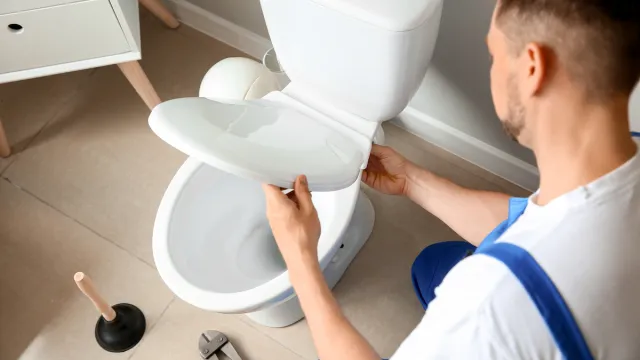
If there’s one reason we like to keep our toilets in tip-top shape, it’s because they’re really expensive to fix. Why spend hundreds of dollars on a plumber—and likely even more on repairs—when you can simply take care of your toilet? However, we know it’s not always that easy and that not everyone is an expert in toilet upkeep. That’s why we polled plumbers to learn the worst things the average person does to their toilet that could cost them some serious cash down the road. Read on to learn the biggest mistakes you’re likely making.
READ THIS NEXT: You Should Never Clean Your Toilet With This, Experts Warn.
1
You flush wipes, napkins, or towelettes.
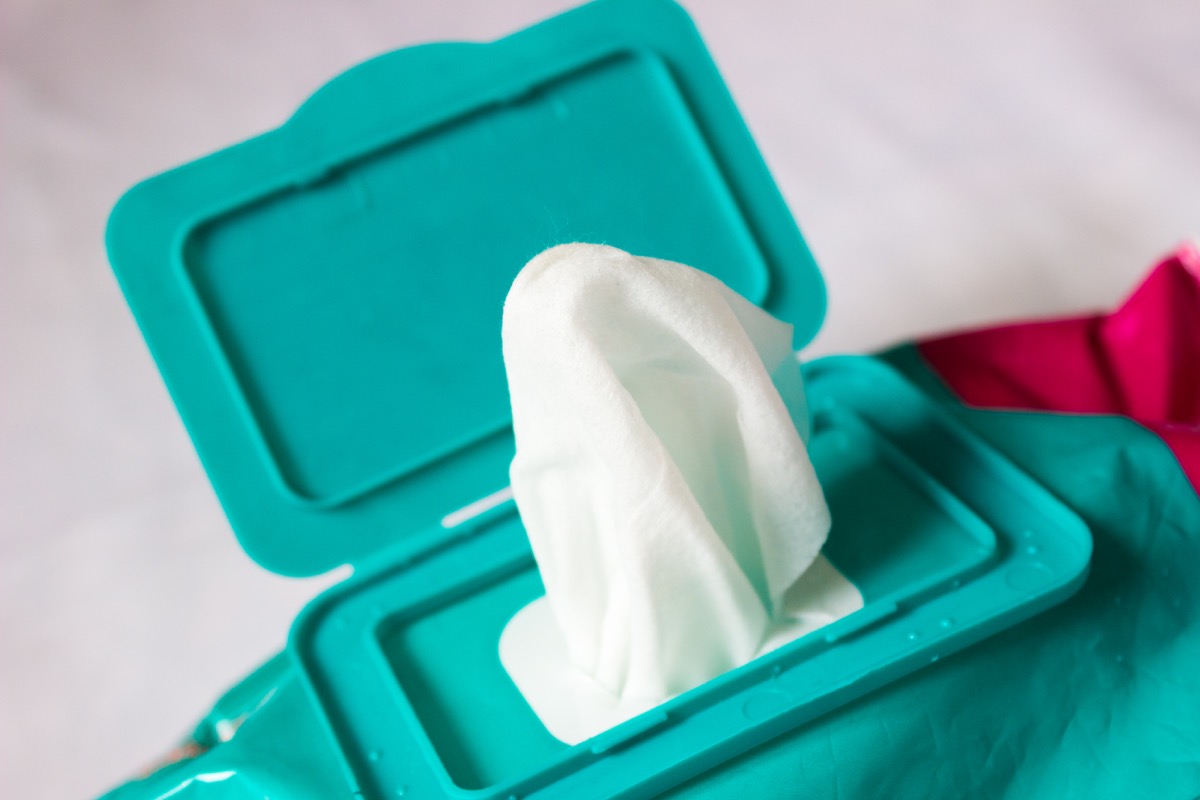
Yes, this even applies to “flushable” ones. According to Doyle James, president of Mr. Rooter Plumbing, these items are thicker than toilet paper and shouldn’t be flushed down the toilet. “During the toilet paper shortage, it was not uncommon for plumbers to find non-flushable items like napkins or towelettes blocking the drain lines,” says James. “Blocked drain lines cause other fixtures to push water back into the home through the drains. A plumbing professional will need to inspect the drain lines to find where the stoppage is occurring.”
From an environmental standpoint, flushing these items leads to the growing fatberg problem. These “gross globs,” according to Newsweek, “are the accumulation of oil and grease that’s been poured down the drain, congealing around flushed nonbiological waste like tampons, condoms and—the biggest fatberg component of all—baby wipes.” They end up costing cities and towns millions of dollars to remove.
2
You flush grease or food scraps.

Speaking of flushing grease, that’s another no-no, as is flushing food scraps. “Many people put thick soups, oils, and sauces down the toilet, but it can collect and cause issues,” says Brendon White, director at District Drain Solutions. “Some things (like coffee grounds and greases) turn into a paste and can cause problems in your pipes, so you should be very careful with these things.”
If you don’t know how to dispose of grease, a common solution is to let it cool and pour it into an old container that can then be thrown in the trash. An article on Mr. Rooter Plumbing suggests using a milk carton “that will slowly decompose.”
READ THIS NEXT: 1 in 3 People Only Wash These Once a Year, Survey Says.
3
You flush dental floss or hair.
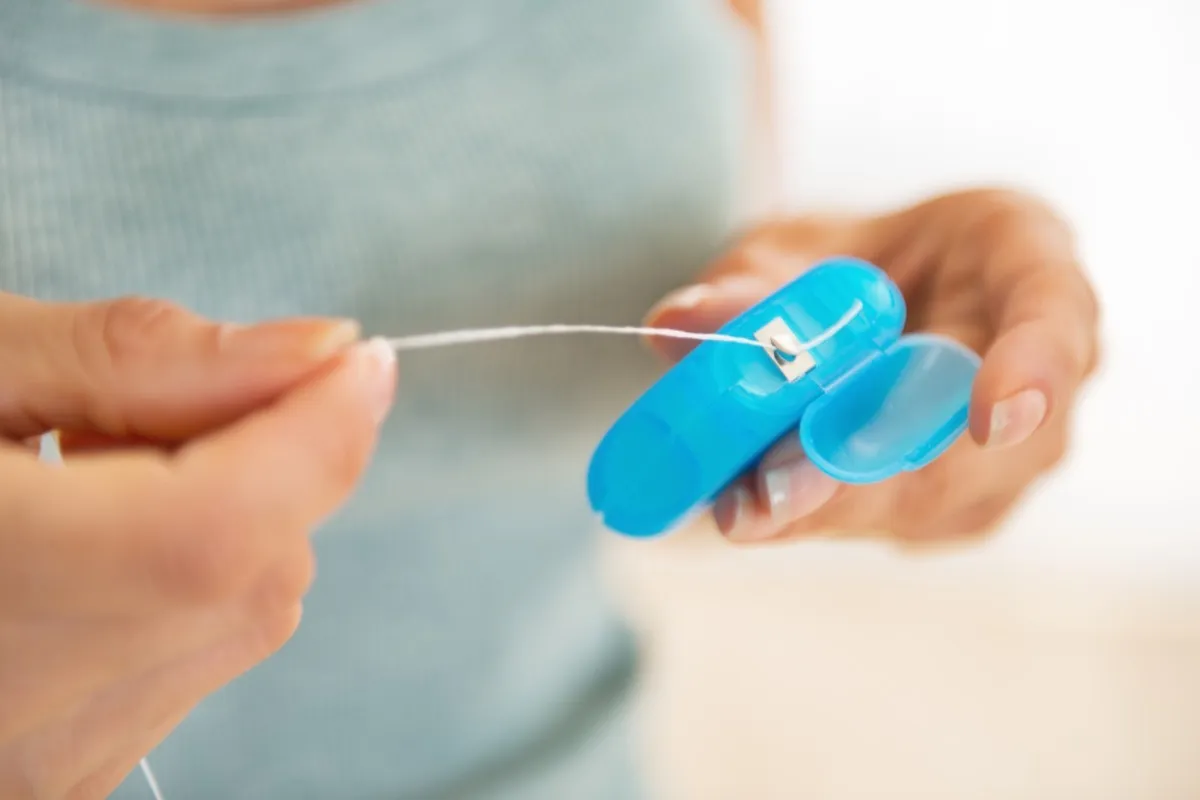
Just like hair can clog your sink and shower, it can also get stuck in your toilet. “Dental floss is durable and can easily catch on gunk in your drains,” says Jake Romano, manager of John The Plumber. “Worse yet, it can act as a net to catch additional stuff!”
Hair works in a similar way—and while it’s less durable, there’s often more of it. “This seemingly innocuous substance can cause a major blockage,” says Berry. “When water is unable to flow freely through the pipes, it can lead to everything from small leaks to complete system failures.” Keep an eye on your toilet and shower drainage and clear debris on a regular basis.
4
You use too much Drano.
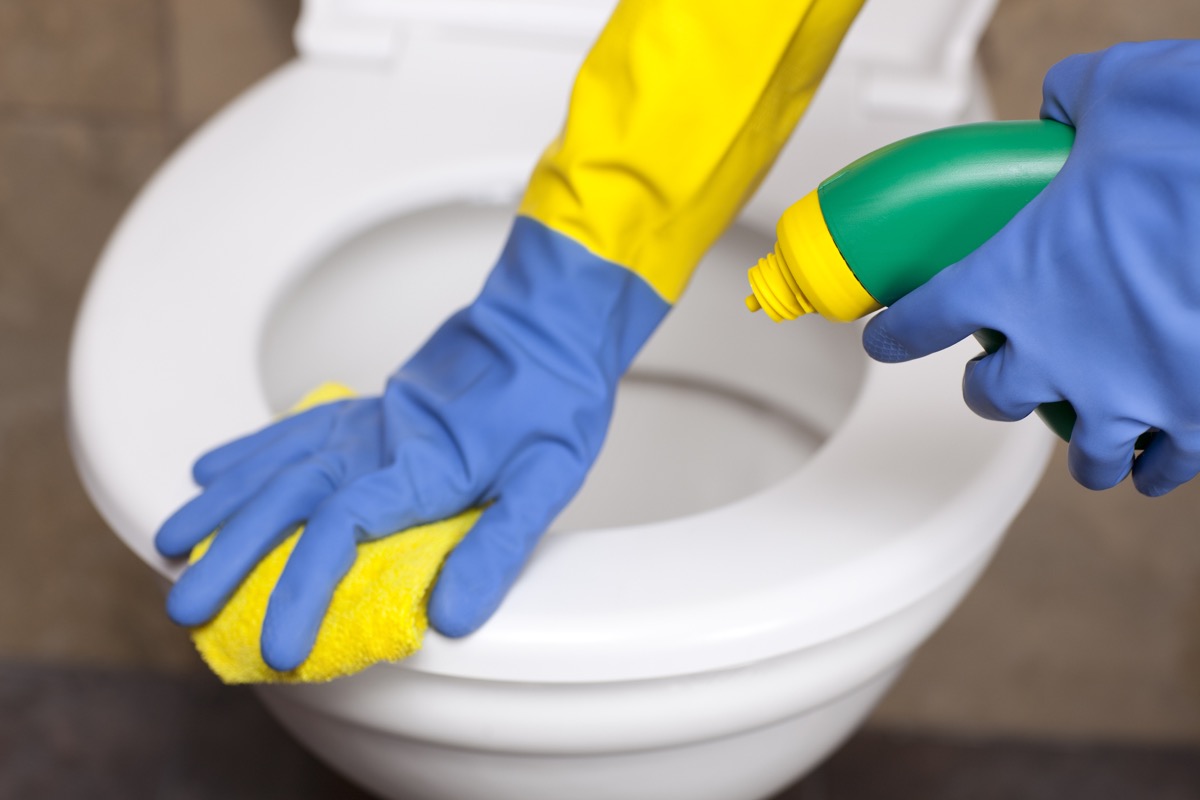
If your toilet does become clogged, you’ll want to be cautious with how you fix it. “Another mistake people make is using too much Drano,” says Michael Berry, founder of Folsom Plumbing Company. “Drano is a powerful chemical that can eat through pipes and cause leaks—so, be careful how much you use and always follow the directions on the bottle.”
For mild clogs, Roto-Rooter suggests using baking soda and vinegar. “While [they] are chemicals, they aren’t the caustic, potentially dangerous kind commonly used to clean drains.”
For more home advice delivered straight to your inbox, sign up for our daily newsletter.
5
You ignore seemingly small issues.
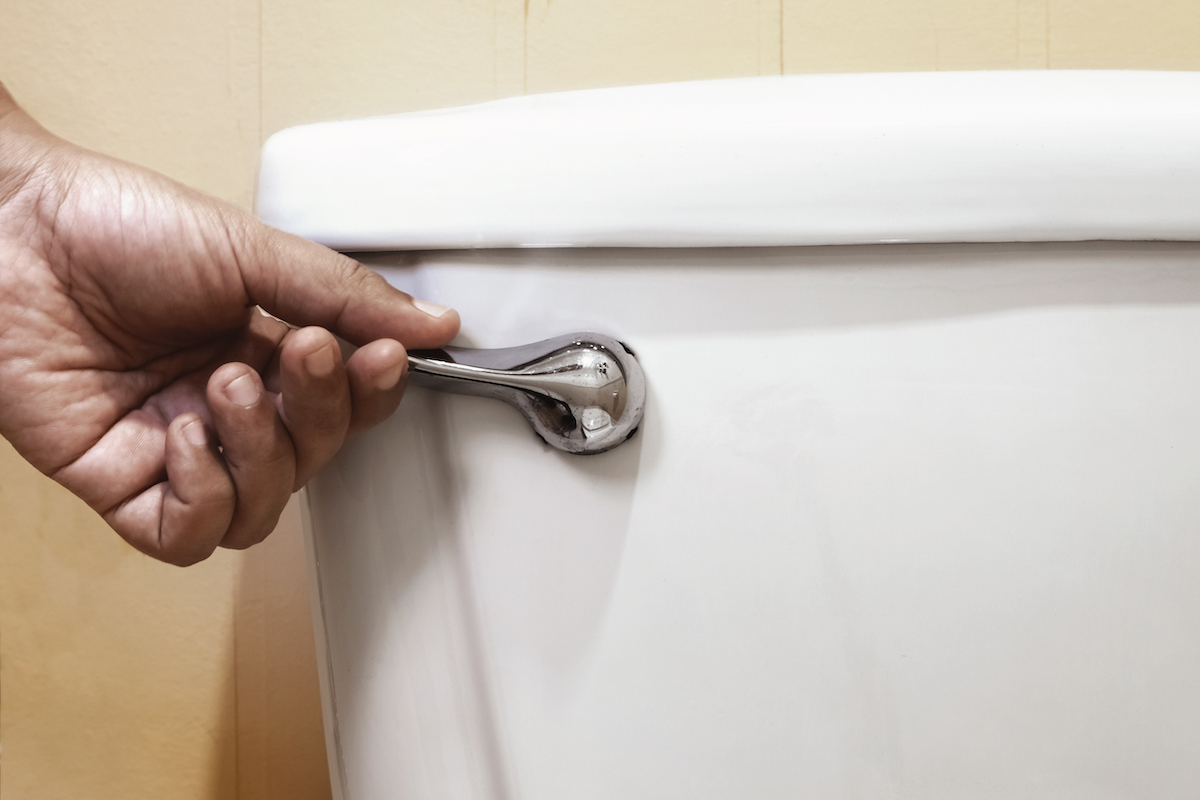
Ignoring the condition of your toilet will also cause problems. “For example, many clients will hear their toilet run for weeks but completely ignore it, which can lead to bigger issues down the road as it gets worse,” says White. “To begin with, a running toilet is usually an easy fix like the need for a new flapper or re-adjusting the chain inside the toilet. But, if it’s left long-term, it can become much more serious.”
According to Roto-Rooter, some other often overlooked issues include a black ring around the toilet base, unusual odors upon flushing, and constant clogs.